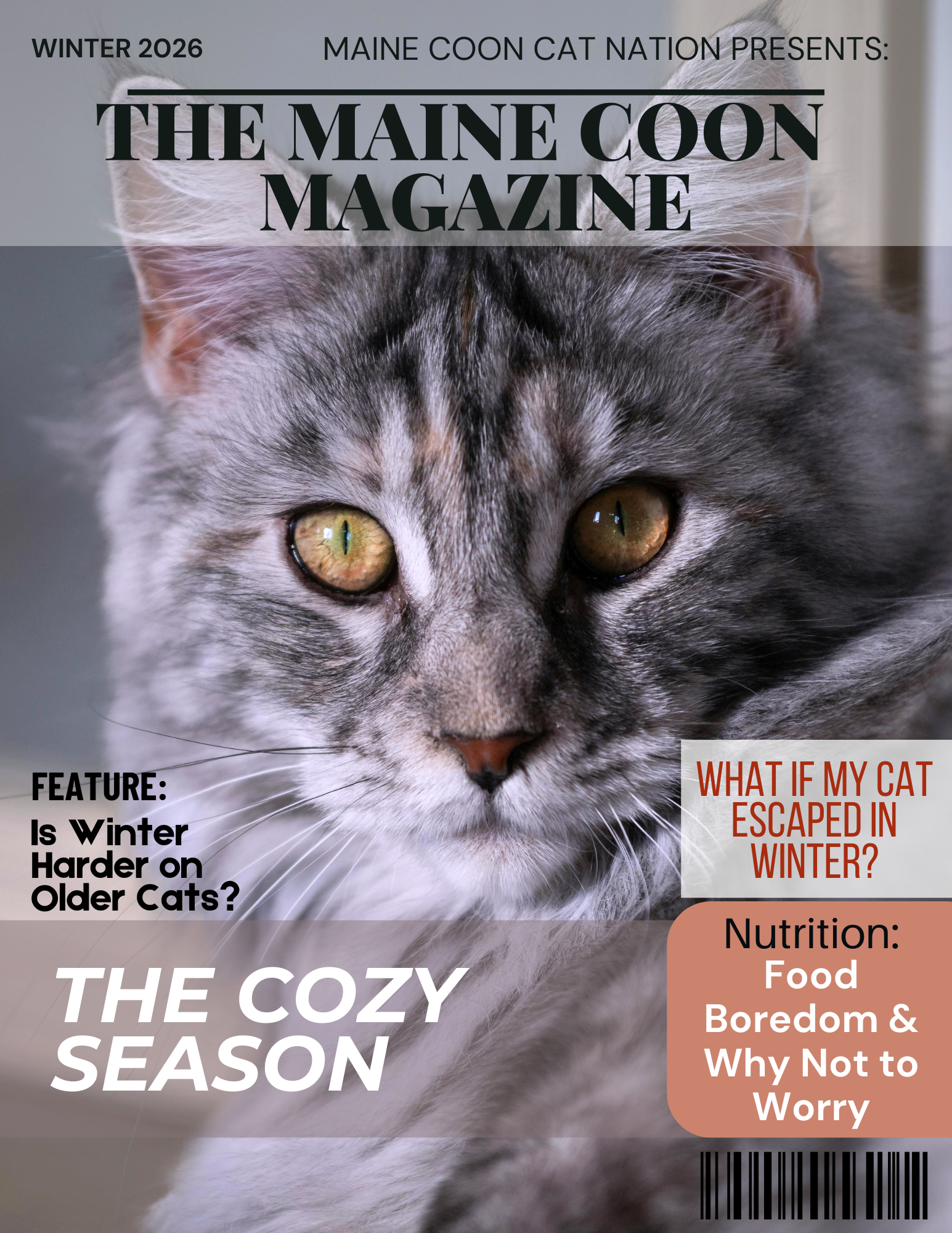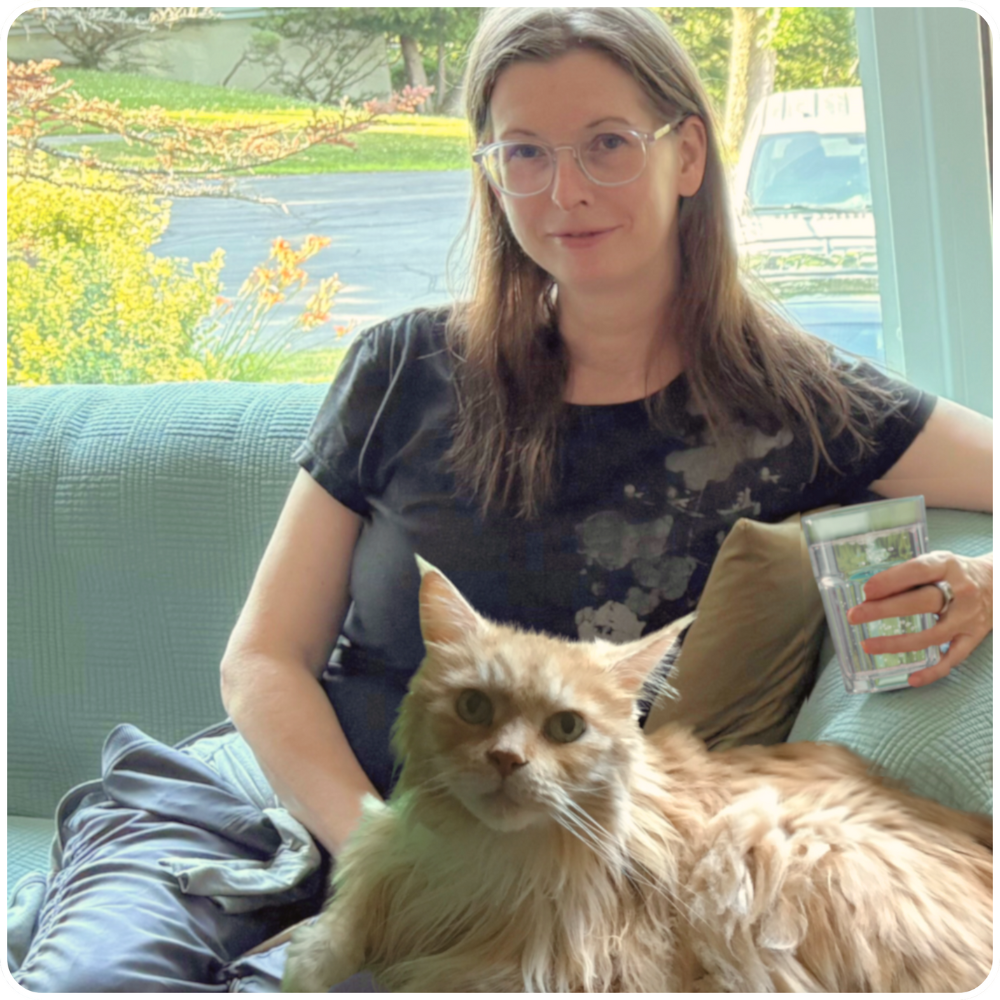- Home
- Maine Coon Food
- Maine Coon Kitten Food Q&A's
Disclosure: this site is reader-supported. When you buy through links on our site, we may earn a small commission, at no extra cost to you.
Maine Coon Kitten Food
Nutrition Questions & Answers
What is the best Maine Coon kitten food? Is it raw? Is it "special" kibble from the vet? Canned food or wet? Maybe a combination of all of these?
Nutrition is one of the most important topics for new Coonie parents. Whether you're a seasoned cat parent or a new member of our ever-growing community, you want the optimal nutrition to help your beloved fur babies thrive.
If you like this, you'll love our fun, free Daily Digest!

Feeding kittens is not just about filling their bowls; it’s about understanding their unique nutritional needs to foster their healthy growth.
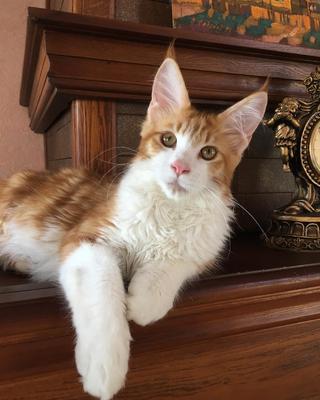
Proper nutrition is the foundation for raising happy, healthy Maine Coon kittens, and knowing what goes into their food can make all the difference.
These babies are sometimes extra big, and extra fast-growing - there are things like joint development and bone growth to consider, so that they can grow into strong, healthy adult cats!
We are going to talk about what makes a good ingredient versus a bad one, and discuss the benefits and considerations of raw diets.
We'll also take a close look at the popular Royal Canin brand, examining its ingredients and how it measures up.
Plus, we'll explore how the slower growth and larger size of Maine Coons influences their food portions and feeding habits.
Our shared goal in this wonderful community is to see our Maine Coons flourish, and a nutritious diet plays a key role in that!
Good vs Bad Ingredients
When it comes to Maine Coon kitten food, it's essential to understand the ingredients that go into it, in order to support their vibrant health and energetic growth.
The right ingredients can make a huge difference, so let's explore what's good and what's not so great for your Maine Coon kitten’s healthy growth!
Beneficial Ingredients: The Building Blocks of Health
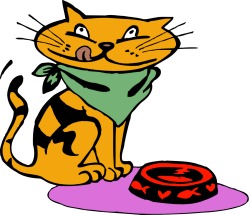
First up, a diet of high quality protein! Maine Coons thrive on a diet rich in proteins, which support their robust muscle development and overall growth.
Look for excellent sources of protein that fuel your kitten's boundless energy.
Protein is vital for large breeds like Maine Coons because it supports robust muscle development and overall growth.
These robust cats require high-quality protein to fuel their larger bodies, maintain healthy skin and coat, and support strong bones.
Adequate protein intake also ensures their immune system functions optimally, aiding in the prevention of illnesses.
For Maine Coon kittens, a diet rich in animal proteins provides essential amino acids that are crucial for their rapid growth phase, promoting a healthy, active, and vibrant life.
When selecting high-quality protein sources for Maine Coon kitten food, choose ingredients that provide the necessary amino acids for growth and development.
Here are some of the best protein sources to look for in Maine Coon kitten food:
Named Animal Proteins
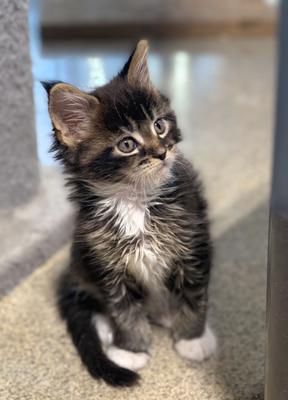 Little Sergiy
Little Sergiy- Chicken: Chicken is a lean protein source that is easily digestible and provides essential amino acids. Look for labels that specify "chicken" rather than vague terms like "poultry."
- Turkey: Another lean and digestible protein, turkey is similar to chicken but can be a good alternative for kittens that might have sensitivities.
- Beef: Beef is a rich source of protein and provides a different amino acid profile, which can be beneficial for variety in the diet.
- Lamb: Lamb is often included for its high-quality protein and is also a good option for kittens with chicken or beef sensitivities.
Fish
- Salmon: Rich in omega-3 fatty acids, salmon supports healthy skin and a shiny coat. It’s also a high-quality protein source.
- Tuna: Tuna provides a flavorful protein source and is high in essential fatty acids. However, it should be fed in moderation due to potential mercury content.
Meat Meals
Meat meal is made from meat that has been cooked (rendered) to remove moisture and fat, leaving a concentrated source of protein and minerals.
The meat used is primarily muscle tissue but can include other parts of the animal that are still considered meat.
This highly digestible protein is comprised primarily of muscle meat, with potential inclusion of other high-nutrient parts like organ meats (liver, heart).
It does not include less desirable parts like feathers, beaks, or hooves (which are included in meat by-product meal).
- Chicken Meal: This is a concentrated protein source made from chicken meat, skin, and bones that have been cooked and ground. It's high in protein and essential nutrients.
- Turkey Meal: Similar to chicken meal, turkey meal is a concentrated source of protein that is highly digestible.
- Fish Meal: Made from whole fish or fish parts, this meal is another concentrated source of protein and omega-3 fatty acids.
Organ Meats
- Liver: Rich in vitamins and minerals, liver (such as chicken or beef liver) is a highly nutritious addition to kitten food.
- Heart: The heart muscle is a great source of taurine, an essential amino acid for cats.
If you’re feeding raw or mixing food types, this Q&A offers more on why taurine matters and how to safely include it.
Eggs
- Whole Eggs: Eggs are considered a complete protein source because they contain all the essential amino acids. They are highly digestible and provide excellent nutritional value.
Other High-Quality Protein Sources
- Duck: Duck provides a rich, flavorful protein source that is also high in essential fatty acids.
- Venison: Venison is a novel protein source that can be beneficial for kittens with food sensitivities or allergies to common proteins.
Tips for Selecting High-Quality Protein Content in Kitten Food
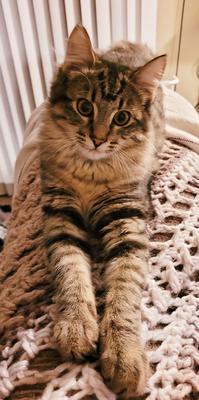
- Ingredient List: The first ingredient should be a named animal protein, such as "chicken" or "salmon."
- Avoid Fillers: Avoid foods where the primary protein source is plant-based, like "soy protein" or "corn gluten meal."
- Quality Over Quantity: Look for foods that emphasize the quality of protein rather than just the quantity.
- Transparency: Choose brands that are transparent about their ingredient sourcing and processing practices.
By focusing on these high-quality protein sources, you can help support the healthy growth and development of your Maine Coon kitten, ensuring they receive the essential nutrients they need for a vibrant and energetic life.
More Beneficial Ingredients:
Essential vitamins and minerals: Vitamin D is a superstar here, promoting strong bones and teeth, which are especially important for growing Maine Coon kittens.
Ingredients like borage oil and psyllium seed husk are fantastic too! Borage oil is rich in essential fatty acids, supporting healthy skin and a shiny coat, while psyllium seed husk aids in digestion, keeping your kitten's tummy happy.
Beet pulp is an excellent source of fibre, which is helpful in moving hairballs along and through the kitten's digestive system.
Lutein is a carotenoid, a type of antioxidant found in certain plants and animal tissues.
It is particularly important for eye health and overall well-being in both humans and animals, including Maine Coon kittens.
Here's a closer look at good sources of lutein and why it's crucial for your kitten's health:
Good Sources of Lutein
Green Leafy Vegetables:
- Kale: One of the richest sources of lutein.
- Spinach: Also high in lutein and easy to include in pet food formulations.
- Broccoli: Provides a good amount of lutein along with other beneficial nutrients.
Egg Yolks:
- Egg yolks are a highly bioavailable source of lutein. This means the lutein in egg yolks is easily absorbed by the body, making it an excellent addition to pet food.
Marigold Petals:
- Marigold extract is often used as a lutein supplement in pet foods because it is rich in lutein and can be easily added during manufacturing.
Animal Tissues:
- Chicken Fat: Contains lutein, especially if the chickens were fed a diet rich in lutein-containing plants.
- Fish and Fish Oil: Some types of fish and their oils contain lutein, contributing to overall eye and skin health.
Why Lutein is Important for Maine Coon Kittens
Eye Health:
Lutein is concentrated in the retina, where it helps filter harmful blue light and protect the eyes from oxidative damage.
This is vital for maintaining good vision, especially in kittens whose eyes are still developing.
Skin and Coat Health:
As an antioxidant, lutein helps protect the skin from damage caused by free radicals.
This can lead to a healthier, shinier coat, which is particularly important for Maine Coons known for their beautiful, long fur.
Immune System Support:
Lutein’s antioxidant properties also help support the immune system by reducing inflammation and protecting cells from damage.
Overall Health:
By combating oxidative stress, lutein contributes to the overall health and well-being of your kitten, supporting growth and development.
Incorporating Lutein into Your Kitten's Diet
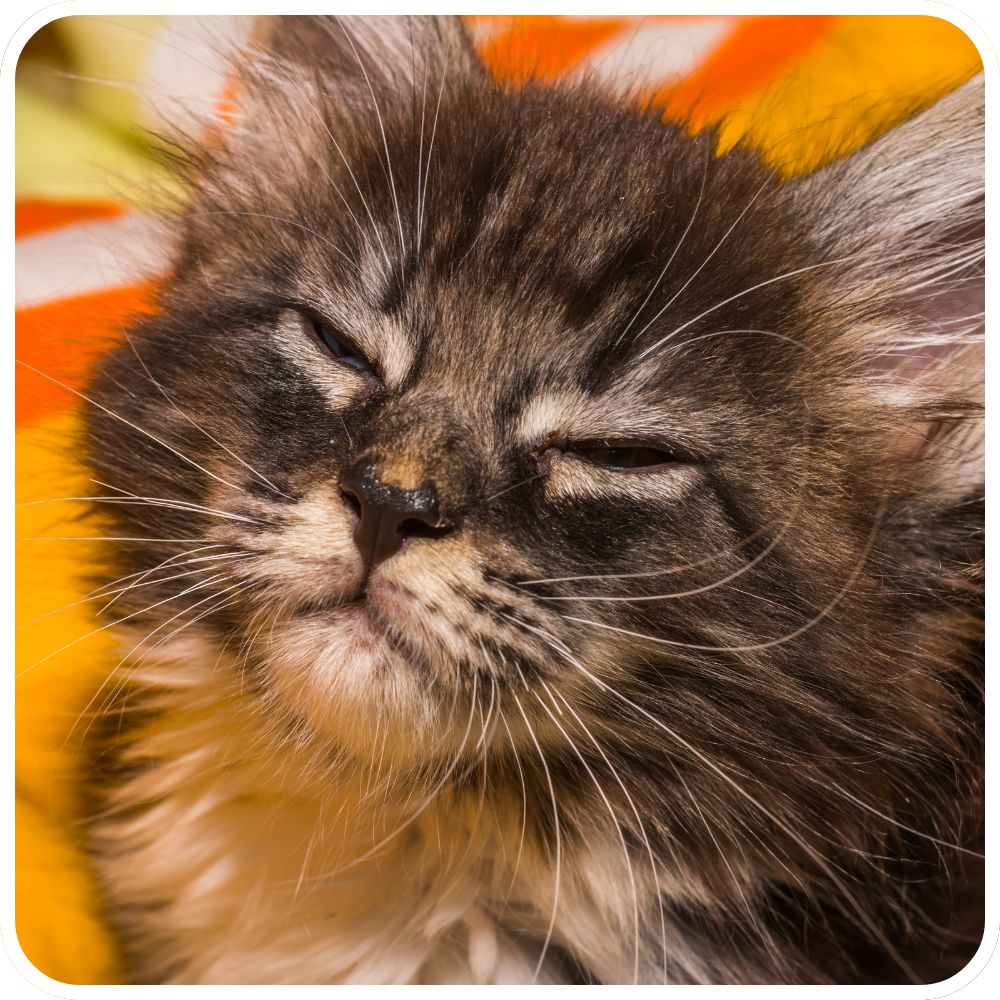
When selecting Maine Coon kitten food, look for ingredients that naturally contain lutein or foods that have been fortified with lutein.
Many high-quality commercial pet foods include lutein as part of their formulations, often derived from marigold extract or included through ingredients like egg yolk and green leafy vegetables.
By ensuring your Maine Coon kitten's diet includes good sources of lutein, you can help support their eye health, skin, coat, and overall development, leading to a healthier and happier life.
Harmful Ingredients: What to Avoid
Now, onto the ingredients you'll want to steer clear of. Fillers like wheat gluten and wheat flour add little nutritional value and can sometimes cause allergies or digestive issues.
Artificial preservatives, colors, and flavors have no place in high-quality Maine Coon kitten food and should be avoided.
Soya oil, while commonly used, isn't the best choice for kittens. It can be hard on their digestive systems and doesn't provide the beneficial fats that other oils do.
Corn gluten meal is another ingredient to watch out for – it's often used as a cheap filler rather than quality ingredients.
Tips for Reading Ingredient Labels
Reading ingredient labels can seem daunting, but it's easier than you think!
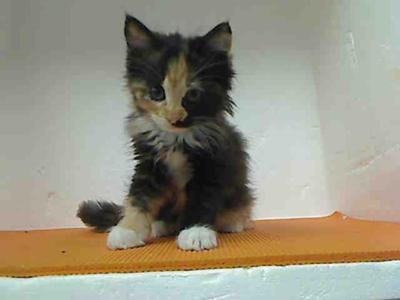
The first ingredient listed should always be a high-quality protein source, like dehydrated poultry protein or chicken by-product meal.
Look for named animal proteins rather than vague terms like "meat."
Avoid foods with fillers such as wheat gluten, wheat flour, and corn gluten meal listed high up on the ingredient list.
These add bulk but little nutritional benefit. Also, be wary of artificial additives and look for natural preservatives instead.
When evaluating the ingredient composition of premium Maine Coon kitten food, it's essential to consider a variety of elements that contribute to overall health and well-being.
Look for ingredients like psyllium husks and vegetable fibers, which support healthy digestion and bowel regularity.
These components often serve as a source of betaglucans, promoting immune system functionality. Vegetable protein offers essential amino acids crucial for muscle development.
The right mix of calcium, potassium chloride, and calcium carbonate ensures strong bones and proper electrolyte balance.
Antioxidants, including folic acid, help protect cells from damage, while glucosamine and chondroitin sulfate support joint health.
Ferrous sulfate and copper sulfate contribute to overall metabolic function, supporting vital bodily processes.
By choosing foods with beneficial ingredients and avoiding harmful ones, you’ll meet the nutritional needs of your kitten and set him or her on the path to a healthy, happy life.
Raw Diets for Maine Coons
The idea of feeding raw diets has gained popularity among cat enthusiasts, and for good reasons!
What is a Raw Diet?
A raw diet for Maine Coon kittens typically includes uncooked meats, bones, organs, and sometimes vegetables and fruits.
This type of diet aims to mimic what cats would eat in the wild, providing a natural and nutrient-rich food source.
Alternatively, many cat owners take the route of buying already prepared and packaged raw cat food.
There are some excellent high-quality brands out there! On this community Q&A page, readers discuss some of the options that work for them: Maine Coon Raw Food Diet
Benefits of a Raw Diet for Maine Coon Kittens
Nutritional Value: Raw diets are packed with high-quality proteins, essential vitamins, and minerals that support the healthy growth and development of your kitten.
The natural nutrients found in raw meat contribute to their overall well-being and vitality.
Natural Diet: Feeding a raw diet aligns with the natural eating habits of cats, offering a diet rich in animal fats and proteins.
Healthy Digestion: Raw diets can promote healthy digestion, as they are free from fillers and artificial additives commonly found in commercial pet foods.
Many Maine Coon owners find that their kittens experience fewer digestive issues, such as constipation or diarrhea, when fed a raw diet.
Oral Hygiene: The natural enzymes and nutrients present in raw meats can support overall oral health by promoting healthier gums and reducing bacterial growth in the mouth.
Long-Term Health: The balanced nutrients in a raw diet can support your Coonie's long-term health, contributing to a shiny coat, strong muscles, and overall vitality.
Potential Risks and How to Mitigate Them
Bacterial Contamination: Raw meats can harbor harmful bacteria such as Salmonella and E. coli.
To mitigate this risk, always handle and store raw food properly. Use fresh, high-quality meats and ensure clean preparation surfaces and utensils.
Nutritional Imbalance: It can be challenging to provide a completely balanced diet with raw feeding alone.
Consider consulting with a veterinarian or a pet nutritionist to formulate a balanced raw diet that meets all of your kitten's nutritional needs.
Cost and Convenience: Preparing raw diets can be time-consuming and expensive.
To manage this, you can start with commercially prepared raw diets specifically formulated for kittens, ensuring they receive the right balance of nutrients.
Lori in Wisconsin asks: "Do we need to feed raw meat to our 4 month old Maine coon kittens? And as they get older? Or can you just feed them dry (we have Royal Canin for kittens), and wet (we have Purina pro plan for kittens).
We have found it very confusing with raw meat. What to buy, how long it's good for after opened, how much to give them of wet, dry, raw, etc Thank you!"
Reply: A raw diet can be a fantastic way to support your Maine Coon kitten's healthy growth, oral hygiene, and long-term health, leading to a happy and thriving life!
On the other hand, it is absolutely not necessary - it's a personal decision based on your individual situation. Raw feeding can certainly be a complicated undertaking.
If you have the time for the preparation and education involved, and/or the budget to purchase the more expensive already-prepared raw food, it's a great option!
If you choose to go the route of a combination of high-quality dry/kibble and canned (wet) food, that's a perfectly good choice, too!
A Closer Look at the Royal Canin Brand and Its Ingredients
Royal Canin, a name often heard in the world of feline nutrition, stands out for its specific formulas tailored to various breeds, including Maine Coon kittens.

This is a big name among Coonie owners for two reasons: First, it's purchased from and available at their veterinarian's office, so quality is implied. And second, it's specifically marketed toward our breed.
Recognized for its reputation and targeted approach, Royal Canin Maine Coon kitten food promises a blend designed to meet the unique needs of our babies.
Featuring a unique kibble size suited to the large jaws of Maine Coon kittens, it claims to promote healthy chewing habits and digestion.
However, scrutiny of its dry food ingredient list reveals a mixture that includes chicken by-product meal, corn, and wheat gluten, raising concerns among some owners about nutritional quality and potential allergens.
While popular among Maine Coon owners, the decision to feed Royal Canin hinges on individual preferences and the importance of ingredient transparency in promoting long-term feline health.
The Slower Growth and Large Size of Maine Coons
Maine Coon cats are renowned not only for their striking size but also for their gradual development from kittenhood to adulthood.
Unique Growth Patterns of Maine Coons
Maine Coons exhibit a slower growth rate compared to other cat breeds.
It typically takes them up to three to five years to reach full maturity.
During this period, they undergo gradual physical development, allowing their sturdy frames and impressive stature to develop gradually.
Nutritional Needs and Food Portions
Due to their larger size and slower growth, Maine Coons have specific nutritional requirements.
Their diet should include a balance of high-quality proteins to support muscle development, essential vitamins, and minerals for overall health.
Adequate portions of food tailored to their size and activity level are crucial to maintaining their ideal body condition.
Free Feeding vs. Scheduled Feeding
Many Maine Coon owners face the choice between free feeding and scheduled feeding.
Free feeding involves leaving food available at all times, allowing cats to eat as they please. Scheduled feeding provides controlled portions at set times.
For Maine Coons, scheduled feeding can help regulate their intake, preventing overeating and obesity.
Note: If you choose scheduled, measured feeding, we recommend you review portion sizes with your vet - not simply going by the age of the kitten on the package label.
Your Maine Coon kitten may have a much larger frame and bone structure than his counterparts of the same age, requiring larger portion sizes!

Tips for Managing Food Intake and Preventing Obesity
To manage food intake effectively:
- Measure portions according to feeding guidelines based on your Maine Coon's weight and age.
- Use interactive feeders or slow-feed bowls to encourage slower eating and prevent gulping.
- Monitor body condition regularly to adjust portions as needed to maintain a healthy weight.
- Incorporate playtime and exercise to promote physical activity and mental stimulation, aiding in weight management.
Maine Coon Kitten Food Q & A's
Maine Coon kitten food is an important part of kitten care! Here, our readers discuss a variety of issues. These community Q&A's and comments about Maine Coon kitten food have been edited for length and clarity.
Pork By-Product For Kitten?
I Think The Vet Is Trying To Sell Me Garbage.
Jennifer in Syracuse NY, USA asks:
I recently adopted a 3-month-old kitten that I suspect is a Maine Coon. The adoption agency covered standard shots, neutering, and a vet visit.
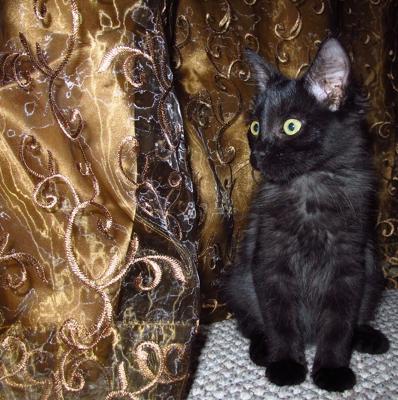
Seeking the best food, my fiancé and I opted for Dave's wet canned food from an organic pet store, touted as natural and grain-free, closer to a cat's natural diet.
However, the vet was impatient and insisted on Royal Canin Maine Coon kitten food, which I found confusing, especially when noticing pork by-product as the second ingredient in Royal Canin.
This discrepancy and the vet's pushiness left me frustrated, exacerbated by conflicting advice online.
Can you clarify if grain-free diets are suitable for cats, and is tuna safe due to mercury concerns?
Reply:
I'm sorry about your disappointing vet visit. Regardless of her reasons, she should have been professional and listened to your concerns. It might be best to find a new vet. Ask friends or family for recommendations.
Regarding grain-free food, it's a debated topic. While cats in the wild don't eat grains directly, they do consume them through their prey's stomach content. So, grain isn't inherently bad, but avoiding wheat, corn, and similar ingredients is wise.
You've done thorough research. If you're hesitant about Royal Canin, check out our article on it. As for pork by-products, they're similar to chicken by-products and can be unappealing.
Regarding grain-free diets, they're generally high in protein, but transitions should be gradual. Some cats, like Alice, might not tolerate them well. Epigen from Wysong is a grain-free option that worked for us.
Dave's sounds like a good choice with its whole, real food ingredients. Regarding the vet's recommendation of Royal Canin, consider if she was promoting it or genuinely advising it.
Lastly, tuna can contain mercury, so moderation is key.
Comments:
What to feed our cats!
by: Nancy
When we were young, we fed our Siamese "Kozy Kitten." It smelled awful, but she loved it. In the 1960s, there was no dry food.
In the 1980s, our next cats got all dry food, nothing wet. Now, in 2011, we have a Maine Coon and a Russian Blue.
Our vet recommends wet food to avoid kidney issues later in life. We feed wet food supplemented with Iams (weight and hairball type) and also Meow Mix and Whiskas from the grocery store.
The recommended feeding amounts are ridiculous—3 packets per 5 pounds of weight.
For our Russian Blue, that would be 9 packets a day, costing about $5 daily! We can't manage that. The Maine Coon kitten eats more than the Russian Blue.
How Much To Feed a Kitten
Marcy in Austin Texas asks:
I have a new addition, Olliver, who is 8 weeks old. I've never had a Maine Coon before. The people I adopted him from said to feed him 1/4 cup of dry food and 2 tablespoons of wet food a day.
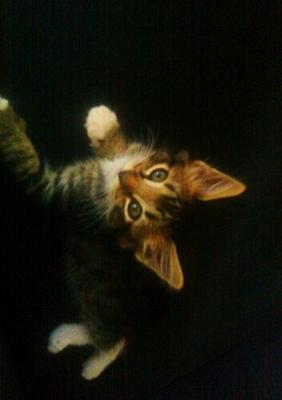
But after the second day of him scarfing down his food like he’s starving, I think that’s way too little. HELP! How much should I feed him?
Reply:
Maine Coon Kitten Food For Olliver
Hi Marcy,
Olliver is adorable! You must be smitten!
And my goodness, I agree, 1/4 cup dry plus 2 Tbs wet does not seem like enough for an entire day!
Young kittens are growing, and need plenty of Maine Coon kitten food. Plus they are full of energy and burn off their calories pretty easily. This is not the age to worry about obesity.
Comments:
Feed him as much as he wants
by: Jill
I was surprised by how much a growing Maine Coon eats. My female, now fully grown, can eat 2 small cans of wet food and a cup of dry food on active days without being overweight.
She stops when she’s full. I prefer free feeding, allowing her to eat whenever she wants. Try that - he's hungry!
Can I Give My 10 Week Kitten Whiskers Milk?
"I have a ten-week-old kitten."
Reply: Congratulations on your new kitten! It's unclear if you're asking about giving milk to a kitten named Whiskers or Whiskers brand kitten milk.
If it's regular milk, the answer is no—kittens don't need milk and it can give them diarrhea. At ten weeks, your kitten should be eating kitten food, both wet and dry. Avoid grocery store brands and look for high-quality options at a pet store.
If you're asking about Whiskas Catmilk Drink for Cats & Kittens, it's fine as a treat but not necessary.
Comment:
Helen shares: "Once weaned, kittens don't need milk as they no longer produce lactase. Milk can cause diarrhea.
Regarding Maine Coon kitten food, Purina has a long history of producing quality cat food. My cats have thrived on Purina Cat Chow and Pro-Plan. My current Maine Coon is healthy with a beautiful coat on Pro-Plan.
A Texas A&M professor once said, "feed to fitness and it doesn't have to be expensive." Premium cat food marketing can be hype. Talk to your vet about your kitten’s nutritional needs."
Maine Coon Kitten Food?
Shirley in Dallas asks:
Our 9-month-old kitten, Mandy, is about 10 lbs and 30 inches long. She was malnourished when we got her from the shelter.
We started her on dry kitten food and lightly boiled boneless chicken breast. She ate a lot and begged for more, but now she's better and has grown tired of the chicken.
Should we switch to wet food, and if so, what brand do you recommend?
Reply:
Hi Shirley,
I'm glad Mandy is doing well! She seems to be growing nicely. While dry kitten food is fine if she drinks plenty of water, adding canned food can be beneficial.
It provides extra moisture and lower carbs, which are good for her health.
Our cats enjoy Wellness and Wellness Core, but there are other high-quality brands too. Since Mandy likes chicken, you might consider adding some raw meat to her diet.
Bon Appetit!
Comments:
My male Maine Coon didn't like wet food, so I fed him Meow Mix, which he enjoyed for years.
I always leave dry food out so my cats can eat whenever they want. Try leaving a bowl of dry food out for Mandy and see if she likes it.
Do You Have a Related Cat Question? Ask Us Here!
Do you have a question? Fill out the form below to get an answer! Give us as much information as you can, so we can best understand your unique cat questions!
